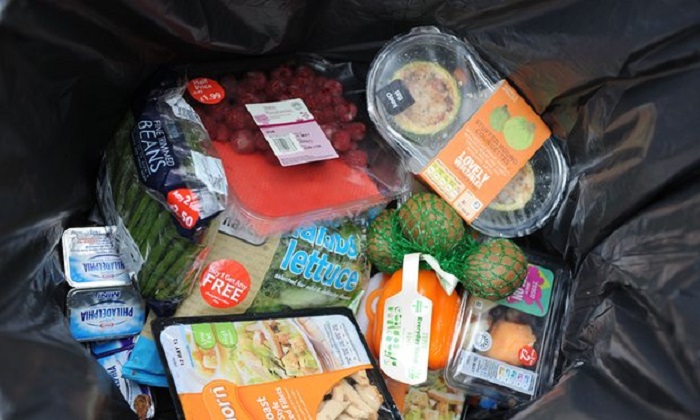Binding laws to halve food waste across the continent by 2030 were also demanded in a separate report by the parliament’s environment committee, after the European commission ditched food waste targets from a draft law last year.
Backing for the report in an upcoming plenary vote would set the scene for a showdown with the commission and EU nations, as parliamentary consent is needed to pass the package.
Simona Bonafe, the report’s author, told the Guardian: “While 800 million people in the world go hungry every day, nearly 100m tonnes of Europe’s food is wasted each year. This is a paradox of our time that is no longer bearable. At last, we have the opportunity to structure our legislation to prevent food waste in the EU.”
The EU currently has no legally binding food waste targets but Norbert Kurilla, the environment minister for Slovakia, which holds the bloc’s rotating presidency, was adamant that they were needed.
“The sooner we start to have ambitious targets for food waste the better,” he told the Guardian.
Campaigners say that a third of the world’s food is lost between the farm and the plate, at an economic cost of $940bn a year.
Food waste is thought to consume a quarter of all water used by agriculture, and to occupy a cropland space the size of China. It also generates around 8% of the world’s greenhouse gas emissions, which is more than Europe’s share of global emissions.
As the connection between food waste and hunger percolates up the policy-making chain, activists sense a rare opportunity to make legislative gains.
Piotr Barczak, a spokesman for the European Environmental Bureau said: “There is definitely a rising momentum for legislation on the food waste issue. Voluntary measures will not bring any change. They are ice breakers for mind-sets but for real change, we need a proper obligation.”
Earlier this year, France became the first country to ban supermarkets from throwing away unsold food, punishing them with fines of up to €75,000 if they refused to donate it to food banks or charities instead.
The law was the result of a grassroots campaign led by the French councillor Arash Drambarsh, who is now close to obtaining 1m signatures for a petition calling on the commission to extend the ban across Europe.
“This law authorises immediate food distribution,” he said. “Before, you could keep it in the freezer. Now you can stand in front of the supermarket before it closes the door and take it to poor people. More than 300 associations have done that since the law was passed.”
There is broad support for these sort of measures, and the Labour MP Diane Abbott tabled an early day motion last year, calling for a British version. This would crack down on the 15m tonnes of food and drink thrown away by supermarkets annually, half of which could be consumed.
But even some sympathisers with food waste activism raise caveats about the nature of the obligations in France.
The Scottish National party MEP, Alyn Smith, described the French law as “a brave experiment” but said that the jury was still out on whether it actually worked.
He told the Guardian: “There is anecdotal evidence that people are deliberately not purchasing food on the basis that they will then go and claim poverty at a food bank. It is causing problems as supermarkets have a right to make a profit and indeed are there to do so. We need to make sure that we do not pass legislation that makes the situation worse.”
On their own, supermarkets account for an estimated 5% of the food waste problem, although the figure could be higher after factoring in unfair trading practices that lead to over-production by small farmers, or the dumping of unwanted stock back on them.
Last week, one key historic barrier to action on food waste – the lack of internationally agreed norms for establishing the shape and nature of the problem – was definitively resolved.
The Global Green Growth Forum in Copenhagen approved the world’s first food loss and waste standard, which was thrashed out by a committee including the UN Environmental Programme (Unep), the UN Food and Agricultural Organisation (UN FAO) and the World Business Council for Sustainable Development.
The standard sets criteria for defining, measuring and reporting the food waste problem which can be applied to countries and companies alike.
Achim Steiner, Unep’s director said: “The scale of the problem of food loss and waste can be difficult to comprehend. Having this new standard to measure food loss and waste will not only help us understand just how much food is not making it to our mouths, but will help set a baseline for action.”
Multinationals including Nestle and Tesco also welcomed the new benchmark as an aid to data collection and new food production initiatives.
More about:
















































